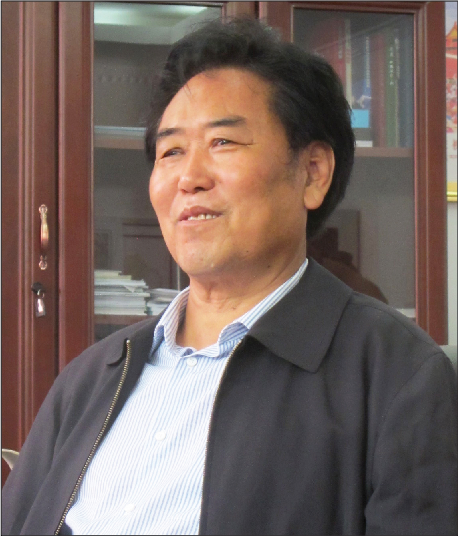Call of wild lights up Tibet for acclaimed engineer
 |
|
Dorjee in his office in Lhasa, the Tibet autonomous region. Palden Nyima / China Daily |
Geologist, academician hopes development of resources will drive social and economic change
Dorjee's dream is to turn Tibet's geothermal resources into a successful industry that can support regional social and economic development.
Dorjee was accredited as an academician of the Chinese Academy of Engineering in 2001, and he was the director and chief engineer of the Geology and Mineral Bureau of the Tibet autonomous region. Although he retired last year, he continues to work with the bureau.
During the more than 20 years he has spent working as a professional geologist in the region, Dorjee has won many government awards.
He played a leading role in the construction of Yangbajan Geothermal Power Station in the 1970s, which has helped to ease Lhasa's power shortage. With an installed capacity of 27,000 kilowatts, the power station has produced more than 3,400 million kilowatt-hours of electricity.
Before the development of the region's hydropower stations, it provided more than 60 percent of Lhasa's power in the summer and over 40 percent in the winter.
"We made it possible to produce power in a place where the average altitude is more than 4,500 meters above sea level," Dorjee said.
"Geothermal energy is more environmental friendly, I have been calling on the government to emphasize the development and usage of the resource in the region, because fossil fuels are limited and nonrenewable."
Tibet has recently put forward a strategy for conserving the region's water resources, and Dorjee has been involved in the work as an expert and consultant.
Dorjee's life could have turned out differently. Four decades ago he worked as a projectionist, which was seen as an attractive job for a young person.
When he was 22, he was hired by the Qinghai-Tibet Scientific Expedition Team, who inspired him to study geology, which he went on to do at the Chengdu University of Technology in Sichuan province.
Due to his academic success, he was sent to Italy's International Institute for Geothermal Research in Pisa and the Lawrence Livermore National Laboratory in the University of California to study geothermal courses.
Although China's installed capacity once ranked eighth in the world, as a result of a lack of investment and input in scientific research in the past few decades, the country's geothermal technology now lags behind developed countries, such as the United States, which has an installed capacity of more than 3 million kW.
"The US initiated enhanced geothermal systems technology in the 1950s and many European countries also started early," he said. "But we have not started yet."
According to Dorjee, China ranks 18th among more than 20 countries with geothermal power technology.
As an outstanding geothermal academician, he has been invited to work in many of China's coastal cities and abroad, but he has declined to leave Tibet.
"Tibet has the richest geothermal resources in China, I am obliged to be based in Tibet," he said.
Lack of professional and technical talent is a stumbling block for the region's geothermal industry development, he added.
Dorjee faces many dangers and difficulties in his work such as bad weather, wild animals and landslides, but he has never given up.
"What attracts me most about geology is that when I go out in the morning, I always feel I will discover something new," he said.
palden_nyima@chinadaily.com.cn









